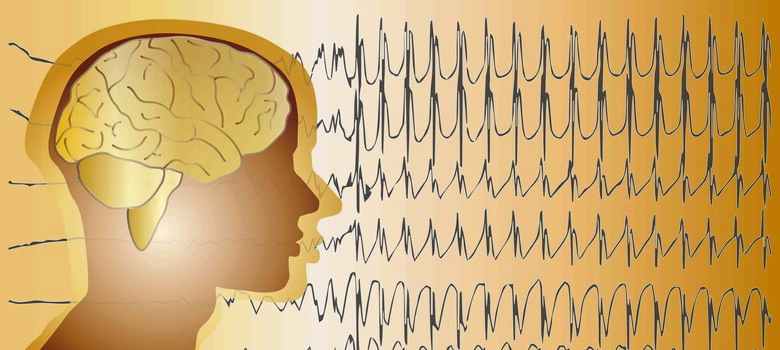Epilepsy Care During Puberty, Pregnancy, and Beyond

Epilepsy can dramatically affect your quality of life, especially if you are planning to have a family in the future. Normal hormonal changes can influence seizure frequency, and medications can affect birth control measures. As a Level 4 Epilepsy Center, Duke Health provides comprehensive care to people with epilepsy through every stage of life. Here, Prachi Parikh, MD, and Susannah White, PA-C, discuss what you need to know about epilepsy throughout puberty, pregnancy, menopause, and beyond.
Hormones Can Affect Seizure Frequency
Hormones like estrogen and progesterone fluctuate throughout your monthly menstrual cycle. “These hormones regulate the brain’s excitability. Estrogen can increase excitability, and progesterone decreases excitability,” Dr. Parikh said.
Changes in these hormone levels during your period or ovulation can increase seizures. This is called catamenial epilepsy. Dr. Parikh recommends keeping a seizure diary to help determine whether your seizures are related to monthly cycles. If so, certain medications may be able to help.
Epilepsy and Birth Control
When it comes to family planning, it’s important to talk to your provider about your epilepsy treatment. Epilepsy medications can make certain contraceptives less effective. At the same time, some birth control measures can affect how your body metabolizes epilepsy medications, increasing the risk of breakthrough seizures. Some birth control options are more effective at preventing pregnancy and can help stabilize hormone levels to reduce seizures. According to Dr. Parikh, it's important to work with an epilepsy provider and a gynecologist who is knowledgeable about these interactions and can recommend the right contraceptive for you. Duke epileptologists collaborate with specialists in obstetrics and gynecology to care for people with epilepsy.
Navigating Pregnancy, Breastfeeding, and Postpartum with Epilepsy
According to White, many people with epilepsy have been told incorrectly that pregnancy is not ideal for them. “It just isn’t true,” she said. The most important thing you can do is plan ahead. “For people with epilepsy, the safest pregnancies are planned pregnancies.” Here, White and Dr. Parikh dispel more myths about pregnancy, breastfeeding, and epilepsy:
- Am I more likely to have trouble getting pregnant? Not necessarily. People with epilepsy are more likely to have polycystic ovary syndrome (PCOS), which is a hormonal condition that can affect fertility.
- Do anti-seizure medications increase the risk of birth defects? According to robust research, more than 90 percent of pregnant people taking newer anti-seizure medications have healthy pregnancies.
- Will I have more seizures if I get pregnant? Probably not. Research shows that most people who are seizure-free for nine months before pregnancy usually remain controlled during pregnancy.
- How will my epilepsy care change during my pregnancy? In addition to your regular obstetrics appointments, your epilepsy specialist will see you at least once during each trimester of your pregnancy. You may also need to have bloodwork done monthly to monitor levels of your anti-seizure medications, as these can fluctuate throughout pregnancy.
- Will I be able to breastfeed safely? Most people who take anti-seizure medications can breastfeed/chestfeed. In fact, the benefits of breastfeeding often outweigh the limited risks associated with medication exposure through breast milk. Talk to your provider about whether your medications are safe for breastfeeding.
- What are my postpartum risks? People with epilepsy are at a higher risk of experiencing anxiety and depression before, during, and after pregnancy compared to those without epilepsy. It’s important to monitor your mental health and talk to your doctor about it often.
- Will I be able to care for a baby safely? Parents with epilepsy need to take extra caution when caring for children. That means making care decisions like not bathing your child alone, changing your baby’s diaper on the floor instead of a raised surface, and using a stroller with automatic wheel locks.
The Effect of Menopause and Hormone Replacement on Epilepsy
Since menopause causes hormones to fluctuate, you may experience a change in seizure frequency during this time. If you are considering hormone-replacement therapy, talk to your epileptologist about how it might affect your seizures and the anti-seizure medications you are taking.
Epilepsy and Bone Health
Certain epilepsy medications can make it harder for your body to absorb calcium and vitamin D, which can further increase the risk of bone loss and osteoporosis in people with epilepsy, particularly those experiencing menopause. Dr. Parikh recommends taking calcium and vitamin D supplements and having regular bone scans to monitor bone health.
Duke Specialists in Epilepsy During Puberty, Pregnancy, and Beyond
As a Level 4 Epilepsy Center, Duke provides comprehensive care to people with epilepsy throughout their lives. If needed, your epilepsy provider can coordinate with specialists in family planning, high-risk pregnancies, neonatal medicine, menopause, and endocrinology in addition to epileptologists, surgeons, and support staff like clinical social workers.
“This kind of coordinated care is really best,” White said. “We're always learning and growing to incorporate new research and treatments, and that is advantageous to our patients.”




